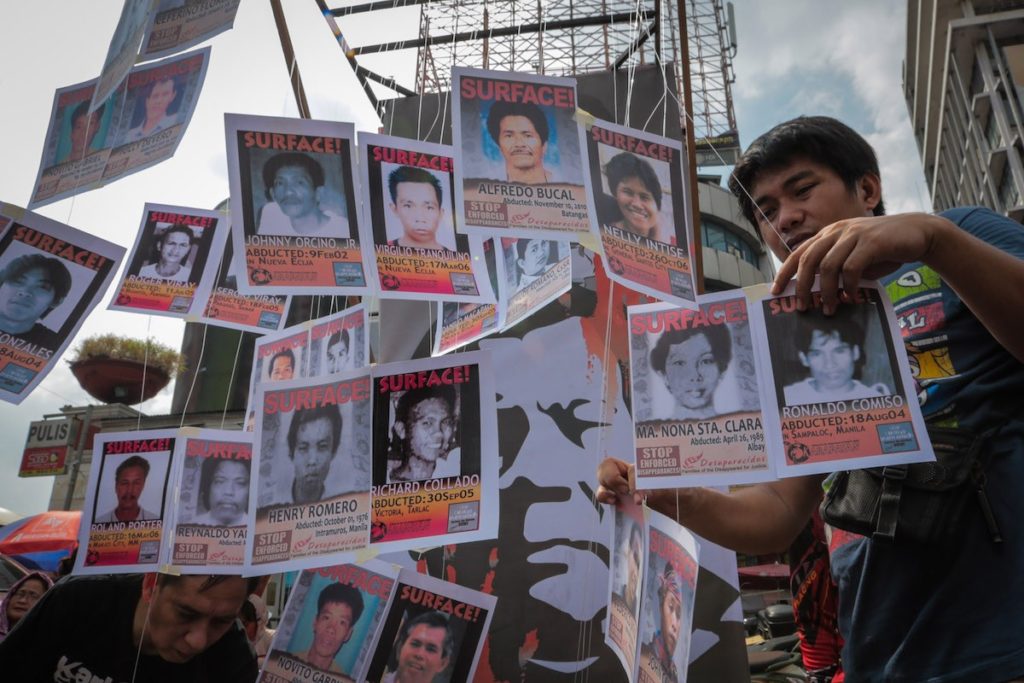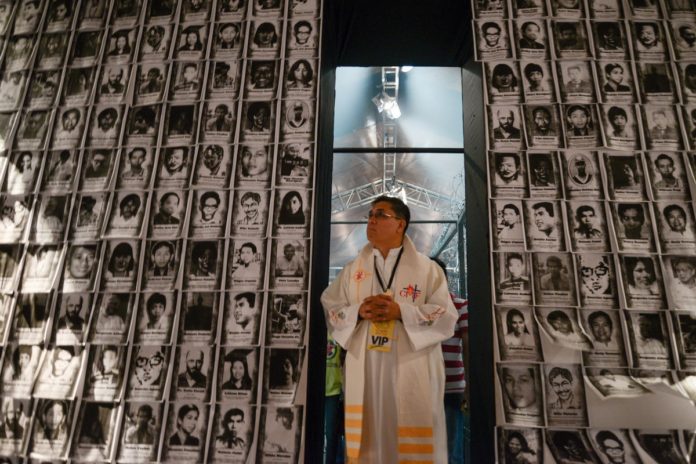As humanity confronts the coronavirus pandemic, family members of “desaparecidos,” in their distinct ways of coping, vividly remember their disappeared loved ones.
Where are they? How are they? In this extremely difficult period, wives, mothers, children of the disappeared wonder how their disappeared loved ones are. Presuming that the desaparecidos are still alive, they worry about their loved ones’ situation. Are they protected? If detained, is there social distancing among inmates? Do they have food? Enough sleep? Not infected? If infected, are they being treated properly?
Shuimeng Ng, wife of Lao disappeared development worker Sombath Somphone wrote a letter to her husband.
“My thoughts suddenly wondered to you — thinking to myself, what it would have been for you these last eight years living a locked down (or more likely locked-up) existence somewhere,” she began.
“I asked myself, what is your situation — are you kept in isolation in a small room, or are you allowed some freedom of movement. How are you keeping yourself physically and mentally busy? Are you able to keep healthy; what kinds of food do you have; do you have access to reading and writing materials; and how are you keeping mentally alert?”
“When my own freedom of movement has been somewhat restricted, the full force of what your deprivation of freedom actually meant, and the toll it would take on your physical and mental well-being came to me more vividly than ever. It hit me in the gut like nothing has ever hit me before, leaving me gasping for air,” Shuimeng added.
Reading the heart-rending letter, I pondered on the prolonged quarantine of the desaparecidos.
I asked other family members of the disappeared about their feelings during one of the most difficult periods in human history.
The wife of missing activist Jonas Burgos, whose enforced disappearance will turn 13 years on April 28, had this to share: “I can’t help but worry for his health and safety. Ever since he was taken, I have been trying to teach myself to be calmer. But each time a new development arises, I find it extremely hard to be completely composed.”
“I have had fears for his safety and well-being in his captivity, but with this pandemic, my fears worsen. The fear of dying alone of the COVID-19 is not new to me, but it worsens with this pandemic. I find consolation in prayer and in helping others,” she said.

Other family members of the disappeared think of the possibility of death.
Erlinda Malicdem, whose husband, labor leader Jimmy Malicdem, disappeared on Oct. 8, 1987, wrote: “The desaparecidos are very sad during this time because they see us in a difficult situation.”
“If they were alive, they would fight for the hungry like what they did when they were still with us. But what I know is that my husband, Ka Jimmy, is now in heaven.”
“On one hand, he is sad to see our situation. On the other hand, he is happy to see me helping others, no matter how little it is,” wrote Erlinda.
Before the pandemic, Erlinda earned a living cooking for special occasions. But her source of living is now gone with the lockdown
“The one time relief of rice and canned goods from the government is not enough,” she said, adding that her heart aches for other families of the disappeared, many of whom are poor, who have to struggle during the quarantine period.
In Pakistan, Amina Masood, chairwoman of Defence for Human Rights, said not knowing where her husband would be, make her “more restless.” Her husband, Masood, has gone missing.
“I fear about unhygienic conditions and disease outbreak in prisons. I pray for Masood and all the disappeared,” she said.
Amina said she is also worried about the families of the “desaparecidos” who are “emotionally and financially ruined.”
In Argentina, the Mothers and Grandmothers of the Plaza de Mayo, are not convening on Thursdays in front of Casa Rosada for the first time in 43 years.
Instead, Argentina’s civil society groups are conducting an online campaign as a tribute to those who withstood the tests of time and have made a big contribution to the global struggle against enforced disappearances.
During this pandemic, the “desaparecidos” are spiritually present as ever. In unison, families of the disappeared chant: Presentes!
Mary Aileen D. Bacalso is former secretary general of the Asian Federation Against Involuntary Disappearances. For her work against enforced disappearances, she was awarded the 2019 Franco-German Ministerial Prize for Human Rights and the Rule of Law. In 2013, the Argentinian Government awarded her the Emilio F. Mignone International Human Rights Prize.
The views expressed in this article are the opinions of the author and do not necessarily reflect the editorial stance of LiCAS.news.









